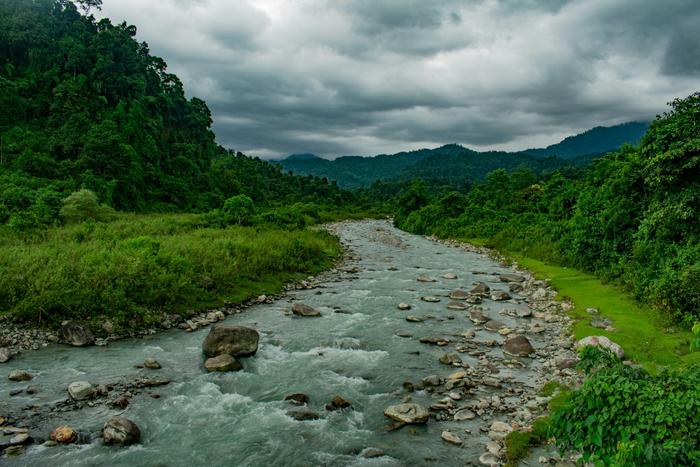Changing weather patterns induced by climate change are contributing to shifts in the location of terrorist activity, according to new research.

Credit: Rabhimb Bardhan
Changing weather patterns induced by climate change are contributing to shifts in the location of terrorist activity, according to new research.
An exploratory study led by extremism expert Dr Jared Dmello, from the University of Adelaide’s School of Social Sciences, found some climatological variables affected terrorist activity in India.
“Suitability analyses indicate that all the climatological variables tested – temperature, precipitation, and elevation – relate to shifting patterns of terrorist activity,” says Dr Dmello.
“Urban centres have increasingly grown in population density, particularly in spaces with favourable climates, and some of the more remote areas once used by extremists have experienced such increasingly dynamic climates that they are no longer fit for human habitation, forcing these groups to migrate elsewhere.”
It was not only the intensity of these climatological variables that led to terrorists moving to new locales, this shifting of terrorist activity was also seasonal.
“This research shows that stopping the damaging effects of climate change is not just an environmental issue but one that is directly tied to national security and defence,” says Dr Dmello, who was recently announced as the inaugural recipient of the Early Career Award from the Academy of Criminal Justice Sciences’ Security and Crime Prevention Section.
“In this study, we focus on attack location, but the data also suggests other forms of extremist behaviour, such as training location, are likely shifting in response to climate change as well.”
The study, published in the Journal of Applied Security Research, concentrated on terrorist activity in India between 1998–2017, a period during which there were 9096 terrorist incidents recorded by the Global Terrorism Database.
“Average temperatures in India reached record highs during our 20-year study period,” said Dr Dmello.
“This time frame represents a broad enough range to demonstrate climate change, while also availing of the most recent reliable data that covers both the climate change and extremism dimensions for the country.”
This new and evolving understanding of how climate change affects patterns of terrorism is important knowledge for governments across the world, including Australia’s, to inform national security and defence strategies.
“While terrorism and violent extremism manifests differently in Australia, with far lower levels of attacks than India, radicalisation is still a salient challenge here and one that the Australian Government has established as a national priority,” says Dr Dmello.
“To effectively mitigate radicalisation, other critical issues, such as homelessness, food insecurity, water and energy crises, and enhanced social equity, are essential for ensuring a more secure space for us all.”
Dr Dmello, who joined the University of Adelaide at the beginning of 2024, also recently co-edited a book examining security in the Arctic from a multi-disciplinary lens and will continue his research into terrorism and extremism in the Australian context.
“Some of my recent projects have been trying to understand how emerging issues impact radicalisation here in Australia in an effort to find ways to partner with government and law enforcement to prevent engagement with extremist ideologies,” he says.
“I am also interested in expanding on my research in this area to investigate the role of water and food inequities on radicalisation around the world.”
Journal
Journal of Applied Security Research
Method of Research
Data/statistical analysis
Subject of Research
People
Article Title
Monsoon Marauders and Summer Violence: Exploring the Spatial Relationship between Climate Change and Terrorist Activity in India
Article Publication Date
26-Feb-2024
COI Statement
No potential conflict of interest was reported by the author(s).
Discover more from Science
Subscribe to get the latest posts sent to your email.


